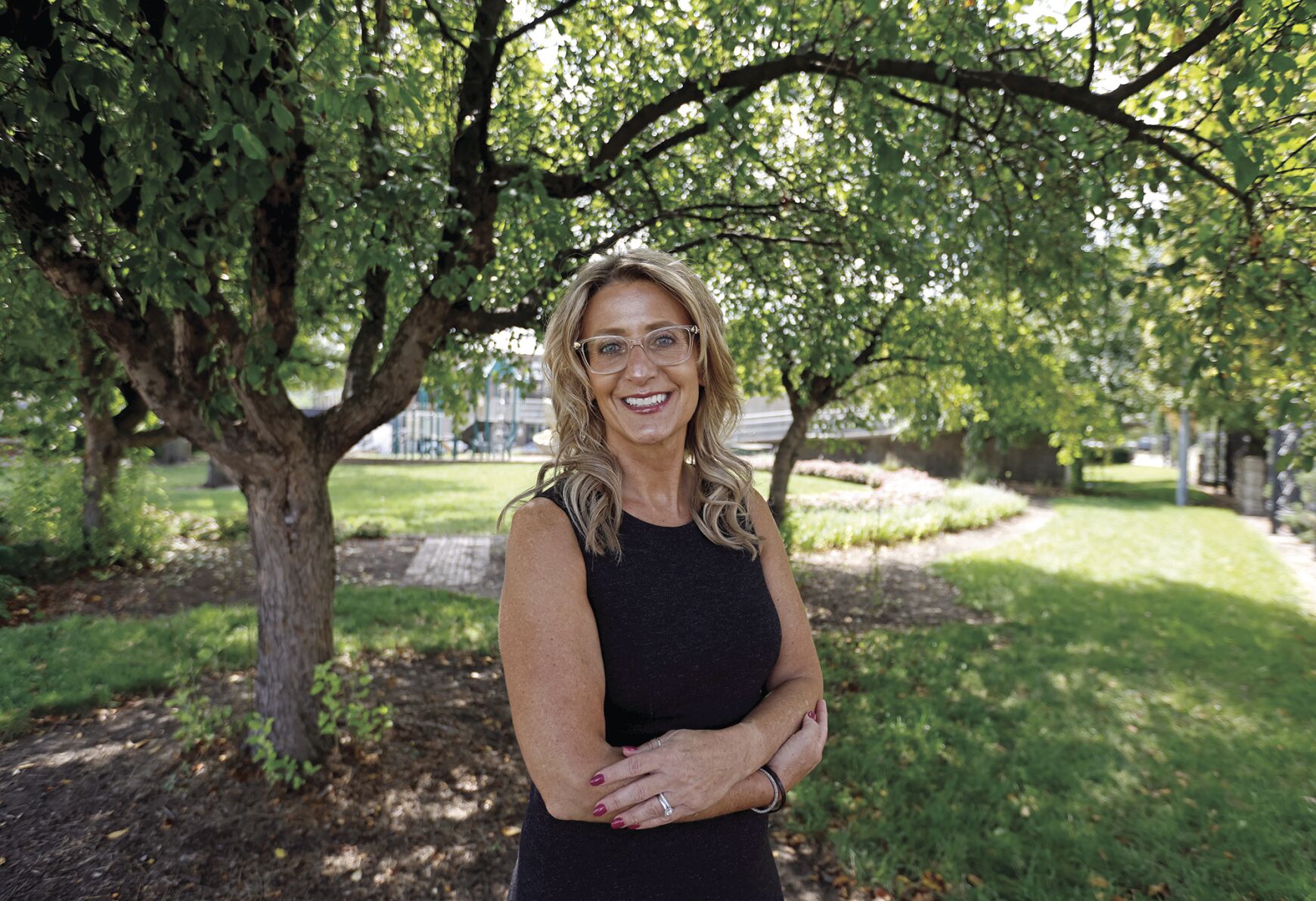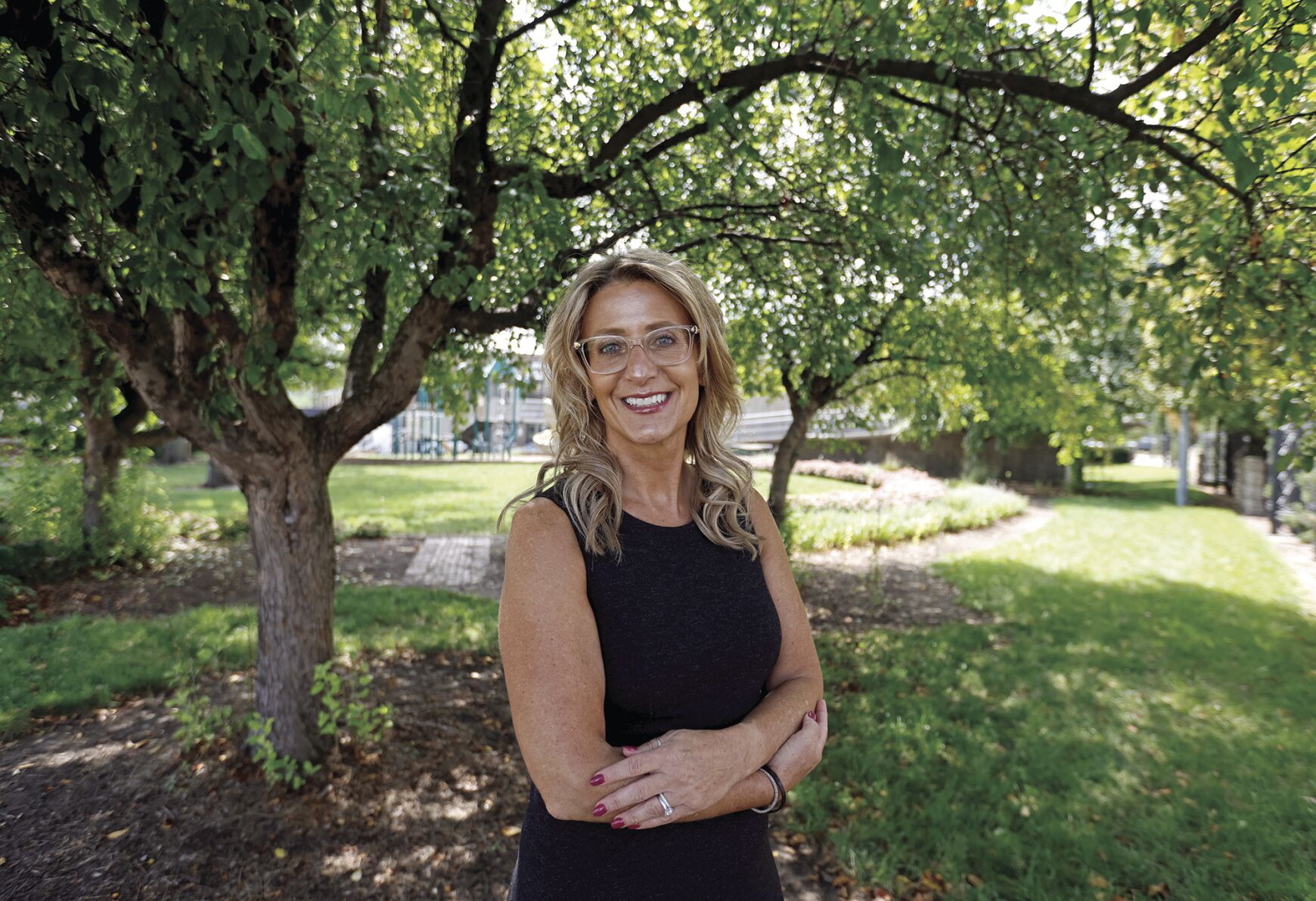Mae Hingtgen has lived a life defined by health and wellness.
“I’ve been a social worker my whole life,” said Hingtgen, 53. “I think, for me, what it comes down to is the idea of advocacy and the belief that we all have a fundamental right to be treated with respect and dignity, no matter what our challenges are in life.”
For the past four years, she has served as the Chief Executive Officer of Mental Health and Disability Services of the East Central Region in Iowa.
Under her leadership, the organization is tasked with providing resources to nine counties and 38 school districts — including Dubuque, Delaware, Jones, Benton, Bremer, Buchanan, Iowa, Johnson and Linn — meeting statewide standards to address and improve the health of more than 600,000 children and adults in Iowa with brain health challenges and intellectual or developmental disabilities.
This includes those with substance abuse issues, health issues, physical disabilities, brain injuries and other human service needs.
“For many of these individuals, life is hard forever,” Hingtgen said. “For someone who has a disability or brain health challenge, we aim to make their lives easier and fulfilling so that they can find a sense of belonging and contribute to their communities. They gain a sense of growth and improvement.”
Prior to her current role, Hingtgen was a Behavioral Support Specialist, as well as the Learning Supports and Equity Coordinator for the Dubuque Community School District for 10 years.
Originally from Laurens, Iowa, she also served as the Executive Director of Every Child | Every Promise and the Director of the Cherokee County (Iowa) Community Services Department.
In addition to her various roles in social work, she also has taught yoga for eight years, serving as the President of the Board of Directors for Mindful Minutes for Schools through the Dubuque nonprofit Challenge to Change, as well as leading classes at B-1 Yoga in Dubuque.
“I see yoga as powerful tool for regulation and to promote healing,” Hingtgen said.”
Ann McDonough, who serves on the Dubuque County Board of Supervisors and works closely with Hingtgen, called her an energetic professional recognized among her peers as a knowledgeable leader and innovator willing to tackle new challenges and set examples.
“Mae has committed her career to making lives better for our most vulnerable adults and children,” McDonough said. “She has done this through system change and service development using data to support and assess progress. Mae’s work as CEO of the East Central Region has been transformative at a time where brain health needs have dramatically escalated.”
McDonough also credited Hingtgen with supporting Cares Act funding that benefited a variety of nonprofit organizations in Dubuque that worked with children during the COVID-19 pandemic, as well as creating a social work position through the Dubuque County Jail and the growth of a jail diversion program throughout the region.
“She has directly contributed to the growth of crisis services in Dubuque County, as well as brain health retreat rooms in the high schools,” McDonough said. “She also has focused on personnel development and team building. In a time of crisis with high stress demands to find answers to gaps in brain health services, Mae has stayed committed to brain health of the coordinator staff.”
While Hingtgen said she was surprised, humbled and honored to be recognized for her work, she also saw it as a way to further the conversation surrounding brain health awareness and continuing to reduce its stigma.
A die-hard fan of her alma mater Iowa State Cyclones and mother of two daughters with husband, Dan, Hingtgen added that big priorities are on the horizon for Mental Health and Disability Services of the East Central Region, such as continuing the integration of brain health and substance abuse funding and services.
“There has been an improvement and an openness, across the board, in talking about brain health. It has become more normalized,” Hingtgen said. “For me, the message is that it is OK to need help. Help is available. And we aim to do our job well so that people know that resources are there for them.”
Megan Gloss writes for the Telegraph Herald.















